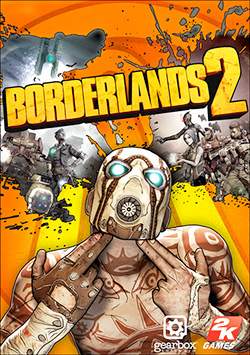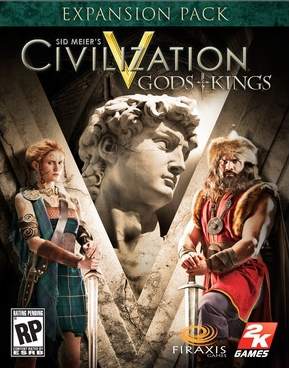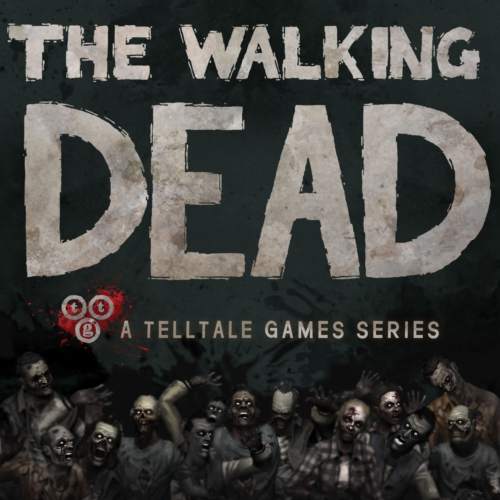Video gaming is not just about AAA budgeting.
Likely, you’re seeing a lot of ‘top video games’ lists around this time of year, and you’re probably seeing a lot of the same titles on them: the biggest budget and highest graphical fidelity often creates the highest scores in today’s video games world, but that’s not all that games are about. As a working adult who loves video games, I also have to take into consideration the respect that the game has for the time I’m willing to put into it.
This takes a lot of otherwise great games off of the list. They are such a dramatic time-sink, that they become nigh unplayable for all but those with the most free time. Thus, my list focuses on games with the best return per-hour of play, especially ones that allow multi-player interaction, since that gives each game a dual purpose. Playing the game and hanging out with my friends makes it a multi-tasking equation. With that in mind, here are my top 5 new games from 2012

5 – Worms Revolution
The latest in the Worms franchise is a great all-round semi-casual game. There is no plot to speak of, and the narrator is a bit obnoxious, but when I have a half-hour to just sit down and play something without wanting to have to really think about it, my cursor drifts toward the icon for Worms Revolution.
It’s a great improvement over previous Worms games, with 3D graphics, multiple Worm classes, and new fluid physics, but it’s still the same basic gameplay: choose a weapon from the arsenal, and fire it at the other worms until they die or you do. Especially when played with friends, the game can result in some really spectacular and unexpected moments, with lots of shouting and friendly smack-talking.
Single player, it’s a fun distraction with a well-ramped difficulty curve. Multi-player, it’s a fast-passed, low-animosity, well-balanced contest.

4 – Borderlands 2
If played alone, Borderlands 2 can be a multi-hundred hours-long RPG that will suck up your time for weeks. Played with friends, it’s a co-operative teamwork-focused riot of a narrative. Best when all four of you are playing it for the first time simultaneously to get the best effect. Working across Pandora, following Handsome Jack, and experiencing all the twists and humor of the tale right along with a small group of your buddies, is the ideal way to experience the goofy title.
The skill-based combat keeps the players on their toes; the variegation of abilities, and the well-paced progression of them, forces the players to really work together; the search for loot is endless, as the variety of loot is endless; and the game is not crippled by an expectation of interaction with a larger player pool – the way Guild Wars 2 and Diablo III are, though in different ways.
The disadvantage, and the only thing keeping it from the top of the list is that it requires a very specific set of buddies. To play it right, you need a small group of friends willing to meet for a few hours once a week or so at a regular time – I’m personally lucky enough to have such a group. Playing with strangers is completely pointless, as you lose the teamwork aspect, and if one friend from the four-person team is missing one week, you simply can’t play, as the game is not forgiving of players who fall behind.

3 – Civilization V: Gods and Kings
I know Civ V was released last year, but it was frankly a disappointing release. Despite its several tactical advances – like hexes and single-stacking of units – there was a bit of the flavor of Civ missing from the game. The variety of sub-challenges was small, and there was no ideological decision making to do as part of one’s grand strategy.
This year’s expansion for the game, Gods and Kings, introduces religion, espionage, and a wider variety of sub-quests, along with some more unique leader abilities. Overall it makes the game finally feel complete, as if this was the intended vision for the game all-along.
It can still be a huge time-sink, if you’re not careful, but the inception of a small third-party app called Giant Multi-player Robot takes care of that. GMR introduces easily managed asynchronous multi-player to the game, allowing groups from 2-12 players to play turn-a-day style Civ games which are managed by the GMR website and desktop client. This means one can play in a half-dozen games at once, and still only take a few minutes out of every day, at one’s convenience, to play the turns.
It’s only the combination of Civilization V, Gods and Kings, and GMR that get the game onto my list. If you happen to start some GMR games. Feel free to invite me. I could stand to be in another game or two.

2 – Orcs Must Die! 2
Like Borderlands 2, Orcs Must Die! 2 is not best played alone. Single-player, it’s a great tower defense/FPS hybrid, sure, but when played with a friend, it really shines.
The gameplay is similar to Dungeon Defenders with the exception of the number of players, which is limited to only two. This is a bit of a blessing, really, as it allows you to get very closely working with one friend. Together you must plan and carry out the defense with limited resources and limited access to the game’s traps and abilities.
In co-operative mode, you get the benefit of an extra body, and your friend’s input on planning, but you don’t get any more item slots, so between you, you must plan carefully who will be taking access to which traps, weapons, and trinkets, knowing that you also don’t share a pool of funds. For example: You could decide that it would be wasteful for both of you to have barricades in your item-bar, but then whichever of you has them will likely build nothing else, as they take up half of the funds, leaving anything else on that player’s bar unbuildable for a few waves.
These types of tactical decisions happen constantly, and a team will have to retry a given level several times to get it right, especially if they want to get it perfect. This type of trial-and-error teamwork can be particularly fulfilling, as long as it’s not so hard it’s frustrating, and Orcs Must Die! 2 seems to have struck a good balance.

1 – The Walking Dead
This adventure game from Telltale takes my number one slot, but is ironically the only single-player game on the list. Further irony is that I’m not particularly fond of zombies. The game’s not really about zombies, though, just as the Walking Dead comic and show is not about zombies. It’s about the drama of survival, and the decisions that must be made in dire circumstances.
More than any other game I’ve played before, The Walking Dead is truly focused on the decisions the player makes. It’s more like an interactive graphic novel than it is like a video game, and the player’s decisions have a fundamental impact on the plot. Decisions that the player makes right from the start of the first chapter effect everything from the composition of the survivor group to the fate of the protagonist. A few plot points are set in stone, of course – it’s not an open-world game, by any means – but it’s a branching narrative more sophisticated than any other, and more evocative. The game was at moments tense, surprising, harrowing, and moving.
It is perhaps the best example ever of a video game as a piece of literature, and for that it easily finds the top of my list, even if my friends can’t come on the journey with me.






